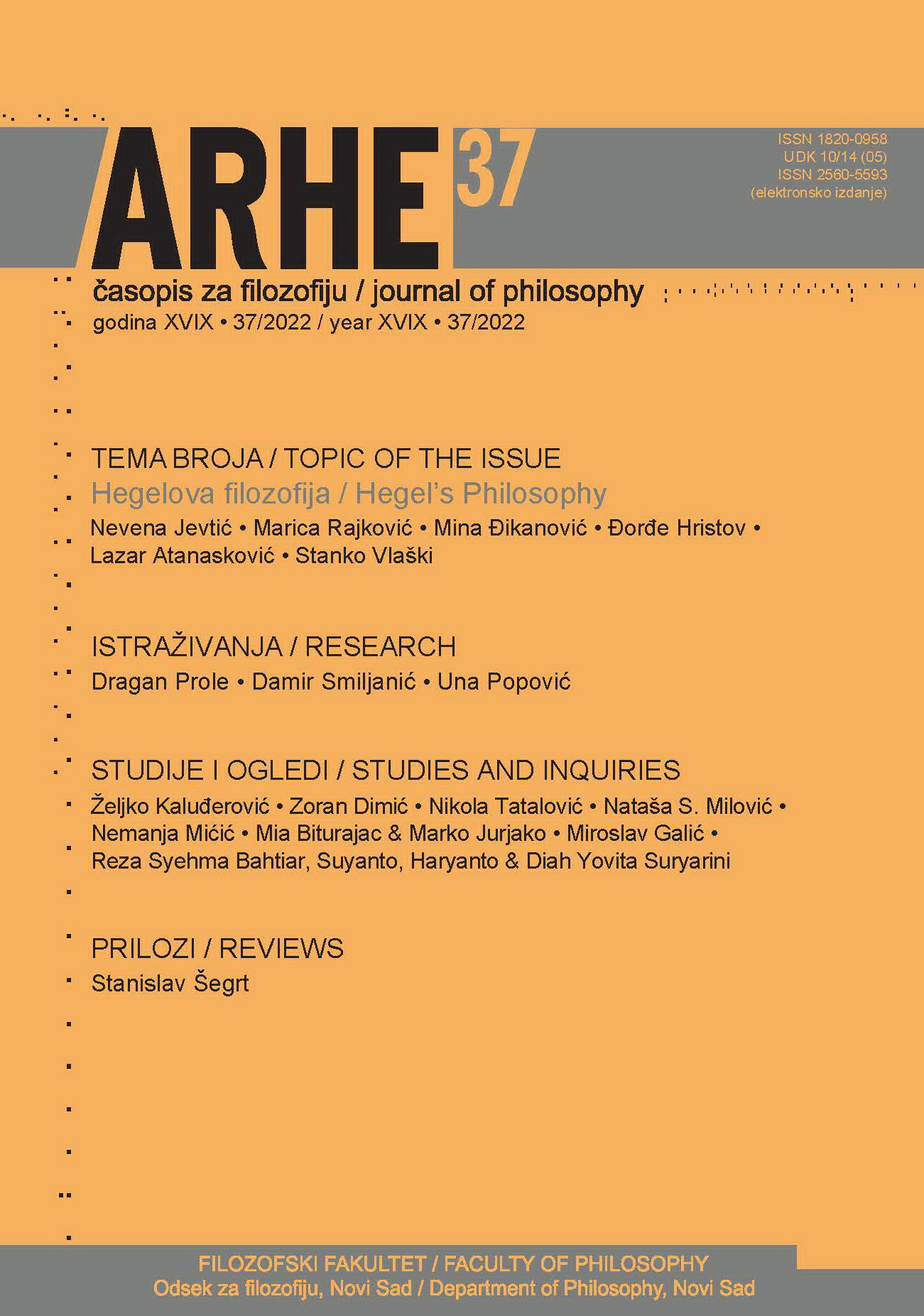FICHTE’S DOCTRINE OF SCIENCE AS APPLIED PHILOSOPHY
Main Article Content
Abstract
We argue the thesis that Fichte's Doctrine of Science can be understood as an applied philosophy in two ways. On the one hand, through how Fichte sees the role of scientists, philosophers, teachers, and educators in society, and on the other hand, based on biographical details from Fichte's life, especially his way of dealing with philosophy. Only Fichte's definition of a scientist, to whom he leaves the responsibility for the overall progress of society, clearly determines how a scientist should deal with science, that is, a philosopher with philosophy. Fichte's general teaching practice and his public activity testify to the fact that he does not see the role of philosophy in its mere theoretical status, even if it was the queen of all sciences, but in putting it in the service of community advancement. The role of the Doctrine of Science in Fichte is placed in teaching and educational practice, but also in various forms of public speaking. In one of the mentioned forms, the general application of the Doctrine of Science is, in fact, its essence.
Article Details

This work is licensed under a Creative Commons Attribution-NoDerivatives 4.0 International License.
References
Basta, D., J. G. Fihte i Francuska revolucija, Istraživačko-izdavački centar SSO Srbije, Beograd, 1980.
Dimić, Zoran, Filozofija kao učenje, u Fihteov idealizam slobode, priredio Danilo N. Basta, Beograd, Dosije studio, 2014.
Fichte, J. G., Saemtliche Werke, I-XI, W.de Greyter, Berlin und Co., 1971.
Fichte, J. G., Briefwechsel I i II, Leipzig, 1925, Gesammelt und hrsg. von Hans Schulz.
Fihte, J. G., Zatvorena trgovačka država, Nolit, Beograd 1979.
Hegel, G. W. F., Vorlesungen ueber die Geschichte der Philosophie, I, Verlag Philipp Reclam jun., Leipzig, 1971.
Ringer, Fritz, The decline of the german mandarins, Cambridge, MA, 1969.
Scholz, Heinrich, Fichte als Erzieher, Kantstudien 19, 1914.
Seidel, H., J. G. Fichte, Hamburg, 1997.
Wallner, Nico, Fichte als politischer Denker, Halle/Salle, 1926.
Weischedel, W., Der Aufbruch der Freiheit zur Gemeinschaft, Leipzig, 1939.
